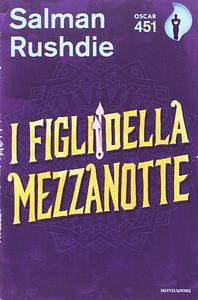You need to sign in or sign up before continuing.
Take a photo of a barcode or cover
adventurous
emotional
hopeful
reflective
sad
tense
slow-paced
Plot or Character Driven:
Character
Strong character development:
Yes
Loveable characters:
No
Diverse cast of characters:
Yes
Flaws of characters a main focus:
Complicated
adventurous
challenging
mysterious
medium-paced
Plot or Character Driven:
A mix
This book is absurd. I was slow to get used to Rushdie's writing style, then once I got used to it I was engrossed. Then I struggled again towards the end because it really felt the story was dragging.
I love the way he weaves Saleems life into India's history but I wish he had done a bit more with the midnight's children and I started to get tired of the absurdity of the story towards the end.
I love the way he weaves Saleems life into India's history but I wish he had done a bit more with the midnight's children and I started to get tired of the absurdity of the story towards the end.
I've tried my best to see why this book has received so much praise and accolades, but it was a struggle. The narrator is hard to like, there are many loose ends that were left hanging, and the ending is very unsatisfying. The book does a good job in describing India's history and its complex politics through the lives of the main character and his family. It also touches on the concept of malleability of the truth (what's truth anyway but someone's version of events based on his imperfect memory and/or interpretation of events that is incomplete) and the impact of parents on their child. The parallels between the main character and India are (and should not be) lost on anyone. However that being said, because it is a book of such ambition, it was unable to flesh out the complexities of the characters more thoroughly, and left me with more questions than answers. Some parts of the book tend to be quite slow and draggy too.
adventurous
challenging
funny
lighthearted
mysterious
fast-paced
Plot or Character Driven:
Plot
Strong character development:
Complicated
I learned a lot about India. Really got into this book.
challenging
dark
emotional
funny
mysterious
reflective
sad
slow-paced
Plot or Character Driven:
Character
slow-paced
Plot or Character Driven:
A mix
Strong character development:
Yes
Loveable characters:
No
Diverse cast of characters:
Yes
Flaws of characters a main focus:
Complicated
challenging
reflective
slow-paced
Plot or Character Driven:
Character
Strong character development:
Yes
Loveable characters:
Yes
Diverse cast of characters:
Yes
Flaws of characters a main focus:
Yes
A labyrinth of a fantasy, difficult to follow for American readers unused to Indian names and concepts. Awarded “Best of the Booker” — the British Man Booker Prize for literature — I can see why the English like it: articulate in that language (even when his sentences run a page in length), the author nevertheless displays superstitions and foolishness that allow them to feel superior to their former subjects.
challenging
informative
slow-paced
Plot or Character Driven:
Plot
Strong character development:
No
Loveable characters:
Yes
Saleem Sinai and the countries of India and Pakistan have their birthdays in common. Winning the lottery of birth into an affluent family in Mumbai, the story follows Saleem's mis-adventures as a result of his birth defects, which also, at points in his life, allow him to hear other people's thoughts and smell every dimension of a scent.
This is the story of India's coming of age, meshed up with Saleem's, and of course has done the rounds in a plethora of reading groups and classrooms.
My verdict? I picked this book up because it was a classic, and I felt like I should read it. The magical elements of the story successfully engulfed me into the journey, as I rode the storyteller's waves and troughs. I thoroughly enjoyed 1947-1971 because I knew the context of India-Pakistan-Bangladesh, but because of my lack of knowledge on post 1971 India, I felt lost at the tail end of the story. I highly recommend this book if you have some contextual knowledge and are interested in a bold account of post-Partition South Asia. Rushdie is a skilful and poetic author, but due to the poetic nature of his prose I often found myself zoning out and had to go back a couple of pages. I also underlined a lot of stellar one-liners re: history and politics, which I will surely revisit. Would I revisit the entire story though? Probably not - I think once was enough to sate me. I'm glad I read an iconic book - although it took me 1.5 months and a whole lotta resolve to finish it.
This is the story of India's coming of age, meshed up with Saleem's, and of course has done the rounds in a plethora of reading groups and classrooms.
My verdict? I picked this book up because it was a classic, and I felt like I should read it. The magical elements of the story successfully engulfed me into the journey, as I rode the storyteller's waves and troughs. I thoroughly enjoyed 1947-1971 because I knew the context of India-Pakistan-Bangladesh, but because of my lack of knowledge on post 1971 India, I felt lost at the tail end of the story. I highly recommend this book if you have some contextual knowledge and are interested in a bold account of post-Partition South Asia. Rushdie is a skilful and poetic author, but due to the poetic nature of his prose I often found myself zoning out and had to go back a couple of pages. I also underlined a lot of stellar one-liners re: history and politics, which I will surely revisit. Would I revisit the entire story though? Probably not - I think once was enough to sate me. I'm glad I read an iconic book - although it took me 1.5 months and a whole lotta resolve to finish it.

